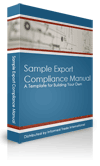Routed Export Transactions
What are Routed Export Transactions?
According to the Foreign Trade Regulations, a routed export transactions is “an export transaction in which the foreign principal party in interest (FPPI) authorizes a U. S. agent to facilitate the export of a shipment from the U. S. and to prepare and file electronic export information (EEI).”
This means that when a foreign party is exporting via the U.S., the FPPI has control over the shipment. In a Routed Export Transactions, the item(s) being shipped are not imports to the U.S.; however, they are passing through with authorization from the FPPI to a U.S. agent (such as a license freight forwarder). This U.S. agent is in charge of completing and filing the EEI.
What are the implications of Routed Export Transactions?
Routed Export Transactions come with in inherit risk considering that though the FPPI is in control of the item(s), the USPPI is in charge of the filing. The USPPI’s information (name, address, etc.) is still attached to the shipment being sent abroad.
What are “Foreign Principal Part Controlled Export Transactions?”
Though the current term is still “Routed Export Transactions,” the BIS (Bureau of Industry and Security) has proposed to change the terminology in order to provide a standard definition. If changed, the practice described above would then be addressed as “Foreign Principal Part Controlled Export Transactions.”
Where can I find additional information about Routed Export Transactions?
Resources can be found at:
http://www.census.gov/#
Posted on June 11th, 2014 by Katie
Filed under: Uncategorized

